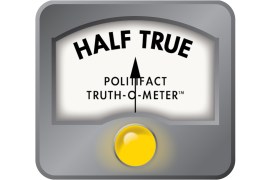U.S. Attorney’s Office Subpoenas Documents Related to Genentech’s Blood Cancer Medication
San Francisco-based biotech company Genentech announced Monday that the U.S. attorney's office in Philadelphia has subpoenaed documents related to the promotion of its medication Rituxan, a drug used to treat the blood cancer non-Hodgkin's lymphoma, as part of a civil and criminal investigation, the San Francisco Chronicle reports (Wallack, San Francisco Chronicle, 10/6). Genentech is cooperating with the investigation, the first federal probe of Rituxan since it was approved in 1997, according to spokesperson Debra Charlesworth, who declined to discuss specific details. Such investigations tend to focus on pharmaceutical companies' promotion of uses that have not been approved by FDA, according to the Los Angeles Times. Doctors can prescribe drugs for unapproved uses, but companies are prohibited from marketing those applications (Vincent, Los Angeles Times, 10/5). State and federal investigators are investigating at least 12 U.S. pharmaceutical companies for either pricing or marketing practices (Bloomberg/Baltimore Sun, 10/6). Rituxan accounts for more than one-third of Genentech's sales -- generating $424.7 million of its $1.1 billion total revenue in the second quarter -- and shares of the company's stock fell 5% Tuesday. Genentech in 1999 agreed to pay $50 million to settle an FDA investigation into allegations that it improperly marketed Protropin, a growth hormone drug (San Francisco Chronicle, 10/5).
Response
Geoffrey Porges of Bernstein said he is not surprised that federal investigators are targeting Genentech, adding, "It's not a good thing, but just about every company in the industry is the subject of one of these" investigations (Los Angeles Times, 10/6). Sven Borho, a partner at OrbiMed, agreed, describing Genentech's marketing as "aggressive" (Bloomberg/Baltimore Sun, 10/6). Jason Kantor, a stock analyst with W.R. Hambrecht, said, "To the extent that [the exact nature of the investigation] is unknown, it is worrisome" (San Francisco Chronicle, 10/6).






